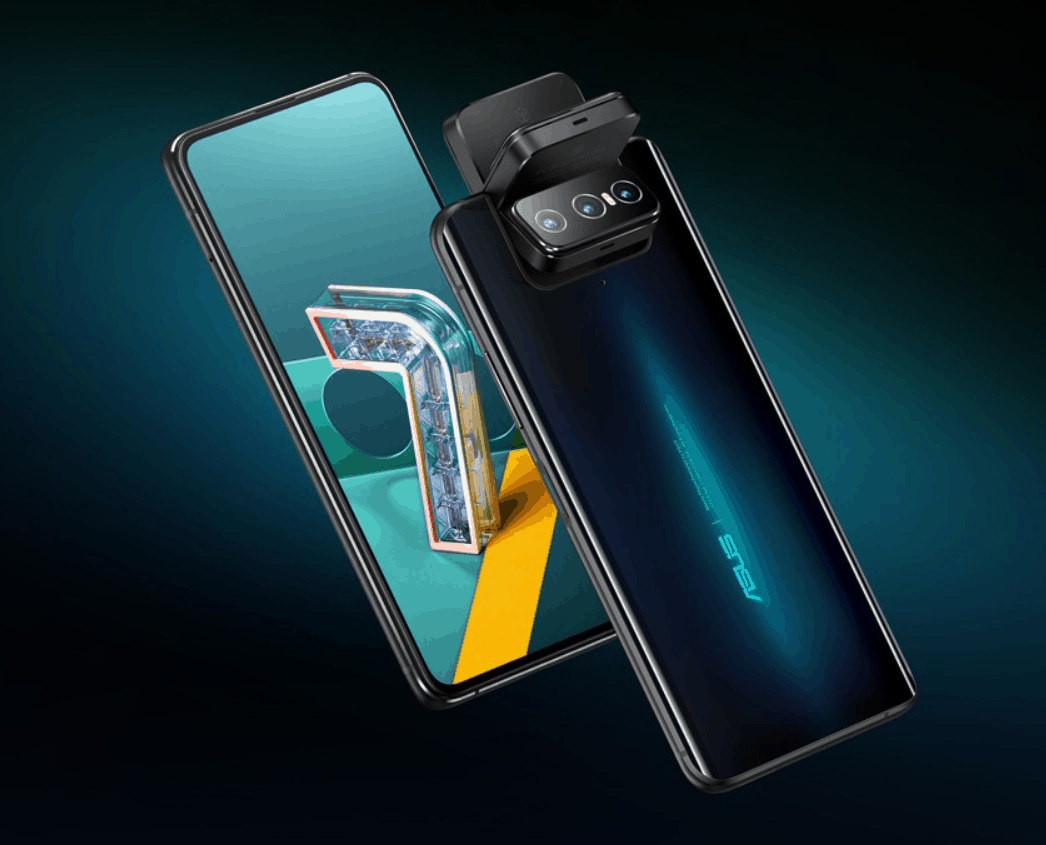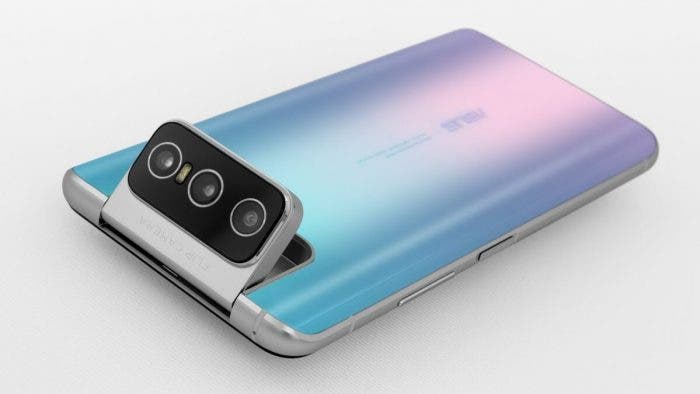In a few days, on May 12, Asustek will uncover its next flip camera smartphone dubbed the Asus ZenFone 8. It should have three models -the standard version, the Pro version and the ASUS ZenFone 8 mini.
Today, a Weibo blogger revealed that the Asus ZenFone 8 will feature a 5.9-inch 2400″1080 resolution 120Hz refresh rate AMOLED screen. Under the hood, the phone will carry the Qualcomm Snapdragon 888 flagship chip. And the latter will be accompanied by a LPDDR5 + UFS 3.1 storage combination. Prior to this, our protagonist appeared on GeekBench with the mentioned features. The tested version had an 8GB RAM. But there are many analysts who believe the ZenFone 8 devices will carry up to 16GB of RAM. The operating system is Android 11. Anyway, in the benchmark, the phone scored 1124 points and 3669 points in the single-core and multi-core tests, respectively.

Well, this is going to be the Asus ZenFone 8 mini and not the standard version. The latter will become the Android alternative to the iPhone 12 mini. If so, we also know that this model will sport a 64-megapixel Sony IMX686 sensor.
The battery capacity should have a 4000mAh capacity. And this will be sufficient for a small-screen smartphone to provide at least one day of endurance on a single charge.
Though this sounds quite interesting, we have big concerns whether small-screen smartphones have future. But our assumptions are not groundless. We mean recently Nikkei Asia reported that Apple is planning to reduce the production capacity of the iPhone 12 mini. Compared with December 2019, the Cupertino-based company Apple has cut about 20% of iPhone production orders. And the iPhone 12 mini accounts for most of the reduction. The demand for the iPhone 12 mini is “far below Apple’s initial expectations“.
Apple has had an initial goal of selling 96 million iPhones in the first half of 2021. This includes sales from the iPhone 12 series and older models such as iPhone 11 and iPhone SE. But later, it decreased the target to 75 million iPhones. Of course, this is still slightly higher than the iPhone shipments in the same period last year.
But this is not the problem of Apple only. Its suppliers suffered a lot as well. Samsung’s global small-size OLED shipments in January fell 9% month-on-month to 45 million units. The Korean manufacturer thinks it’s closely related to the sales decrease of the iPhone 12 mini. An industry insider said that Apple is likely to compensate Samsung for missing OLED panel procurement targets.





